Probate is the process of carrying out the administration of an estate in the Probate Court after someone passes. When a person who owns assets or property passes away, known as the decedent, the Probate Court oversees the transfer of those assets to the rightful heirs or beneficiaries. There are a few different ways to probate depending on the decedent’s estate planning documents and assets owned. This process can be exhaustive and emotional for those who have recently lost someone. Not only are you grieving the loss of your loved one, but now you may feel inundated with complicated legal and financial requirements, within specific timeframes, that you are unfamiliar navigating. The probate administration team at Doyon & White, can help you through this complex process.
If your loved one left a will, the division of assets will be carried out according to their wishes contained in the will. If you have been named Executor or Executrix in a will, you have several fiduciary responsibilities, including taking possession of the decedent’s assets, paying creditors, and administering the estate in a timely manner.
If your loved one has passed away without a will (intestate), his or her property will be divided in accordance with the laws of intestacy. If there is no will, you may still be able to petition the court to be appointed the Administrator or Administratrix of the estate. This process requires notification of all possible heirs and a hearing before the Probate Court. The Connecticut laws of intestacy are complex and can be confusing. Our Probate attorneys can guide you through this process.
Whether or not a will is found, Probate Court filings need to be initiated within 30 days of a loved one’s passing. Even if there is minimal cash or assets, the legal way to transfer ownership is through Probate Administration. Complications can arise years later, or when a spouse or child passes, if an estate has not been properly probated. This process can take months to years depending on the estate assets, property owned, involvement of the beneficiaries, and potential for litigation. While the probate process may seem daunting, our dedicated probate team can help you navigate the court and filings and ensure that your loved one’s estate is probated correctly.
Our Firm offers free initial consultation meetings to anyone seeking advice about the Connecticut probate process. This initial consultation serves as an opportunity for you and an Attorney from our team to meet with each other, discuss pertinent information about your loved one and ensure that your needs are met.
At Doyon & White Law Group, we focus much of our probate representation on advocating and fighting for those who find themselves disadvantaged and forced to rely on others to appropriately handle and provide the information and assets that are rightfully owed to them as either heirs or beneficiaries. Our current laws and court processes drastically tip the scales of power in favor of the person appointed or delegated to oversee caring for someone else’s assets, commonly referred to as a fiduciary. These fiduciaries seemingly hold all the cards, as they are often the only people with access to funds and property, as well as being the only people with the right to ask questions regarding information surrounding these assets.
In some cases, you may not know your rights have been violated or your inheritance has been affected. If you are the beneficiary of an Estate, Trust, Retirement Account, Investment Account, Bank Account, or Insurance policy, and you are seeking answers regarding the handling of your funds and property, the experienced attorneys at Doyon & White are here to help level the playing field and provide transparency and accountability from fiduciaries.
Conservatorships can either be voluntary or involuntary. In a voluntary conservatorship, the probate court will appoint a conservator at the request of an adult who voluntarily seeks assistance in managing his or her affairs, without making a finding that the individual is incapable. In an involuntary conservatorship, a conservator is appointed only if the probate court determines that the individual is unable to care for him or herself, or unable to manage his or her financial affairs.
In Connecticut, there are two kinds of conservators. The first is referred to as a conservator of the person who the probate court appoints to supervise personal affairs and ensure that the conserved person’s basic needs, including food, shelter, clothing, and health care are met. The second is a conservator of the estate. This person supervises the financial affairs of a conserved person, including caring for property, managing bank accounts, and ensuring the safe handling of the conserved person’s income.
The Probate Court prefers to appoint a family member of the individual, or his or her close friend, as the conservator. However, sometimes the court will appoint a lawyer. The court tries to determine who the conserved person prefers but, if a conflict exists, may appoint an uninterested party. The same person or people may serve both as Conservator of the person and Conservator of the estate, or these positions can be split amongst different, qualified individuals.
Connecticut Conservatorships are appointed for adults who are incapable of caring for themselves or managing their finances. Oftentimes these adults are at risk of being abused, exploited, or considered a danger to themselves, and a conservatorship is the best way to protect them and their assets. Conservators are also appointed for an adult suffering from a stroke, dementia, or Alzheimer’s. A conservator can help family members, friends and institutions intervene in assisting and protecting an individual from these dangers once an individual has lost the capacity to do so themselves.
Conservatorship petition proceedings are often complicated and require the presentation of specific medical evidence. A judge must be sure a Conservatorship is in the best interests of the person when making a ruling. Once appointed, a Conservator has ongoing duties to the conserved and to the probate court to be sure they are working in the best interests of the conserved. If you know someone who is struggling with losing their ability to care for themselves, don’t navigate these waters alone. Contact the experienced attorneys at Doyon & White to discuss your options.
As a boutique law firm dedicated to providing personalized and comprehensive Probate Administration, we can assist clients at any phase of the probate administration. Acting as a fiduciary during the probate process can be a daunting responsibility for one to take on, and our experienced team can guide you through the intricate process of final accountings and the seamless closure of estates.
We understand the complexities associated with compiling accurate final accountings, and we recognize the importance of meticulous attention to detail to ensure probate court approval. If you have administered an estate without an attorney and are struggling with the final phases of administration, probate court approval or the distribution on assets, our team can provide fiduciaries with the necessary resources and expertise to facilitate a smooth and efficient closing of estates.
Our deep understanding of Connecticut probate laws and regulations enables us to anticipate potential challenges and proactively address them, minimizing any complications that may arise during the final accounting process. Our commitment to transparency and clear communication ensures that our clients remain well-informed throughout the entirety of the proceedings.
At Doyon & White, we pride ourselves on our personalized approach, tailoring our services to meet the specific needs of our clients, however great or small. We strive to alleviate the burden associated with probate administration, allowing fiduciaries to focus on honoring their loved ones’ legacies.
Ancillary probate is a secondary proceeding required in a state outside of where the original probate proceeding is taking place. This secondary proceeding is required where the deceased left property or assets in more than one state, and because each state has different property laws, a probate proceeding must be made in each state where property is located. At Doyon and White, we can assist families whose loved ones may have lived outside of Connecticut at the time of their death but still owned property in Connecticut.
Understanding the intricacies of trust administration is pivotal to the conscientious management and distribution of assets, while always adhering to the intentions outlined in the Trust document. As Trustees, we meticulously oversee the transfer and management of assets, interpret complex trust documents, and facilitate effective communication among beneficiaries and trustees. Our attorneys are experienced in handling the complexities that often arise during trust management, safeguarding your interests while preserving the legacy intended by the grantor. This is why our Estate Planning team is strong in drafting Estate Planning documents.
With the security of legal oversight, appointed trustees can navigate the particulars of trust administration with confidence, secure in the knowledge that potential legal complications are minimized. Our goal is to safeguard the interests of all parties involved, enabling trustees to fulfill their obligations without compromising the trust’s integrity or inviting unnecessary legal challenges.
Our team is dedicated to providing transparent guidance, ensuring that trustees fulfill their fiduciary responsibilities with the highest level of integrity and compliance with Connecticut trust laws.
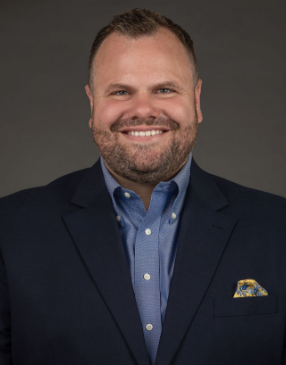
Partner
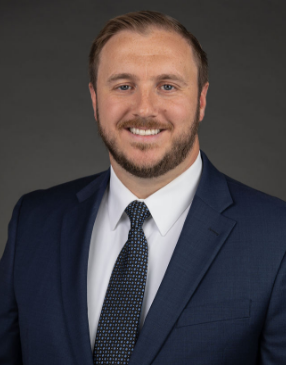
Partner
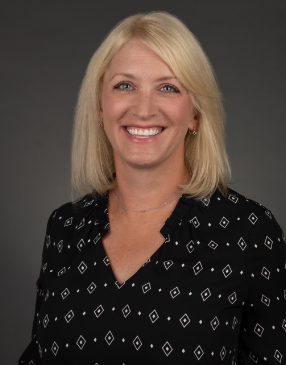
Office Manager
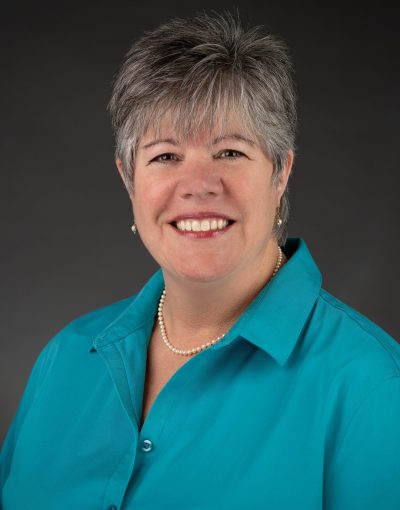
Paralegal
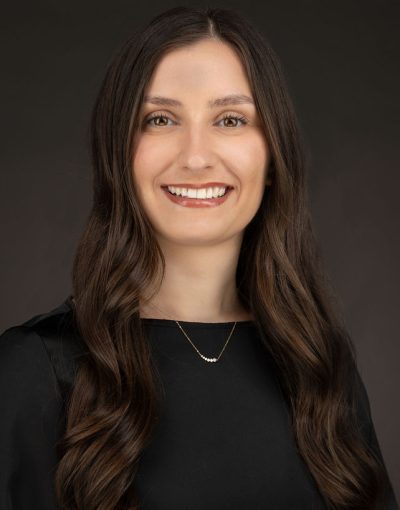
Paralegal
The length of time required to see your case through to completion varies by case. During your initial consultation, we will review the expected time lines and potential recovery uniquely associated with your matter.
Usually, there is a statute of limitations on bringing a claim. This means you have a limited amount of time to notify the other party of your claim for damages and filing with the appropriate courts. For most wrongful death and catastrophic injury claims, you have less than two years from the date of loss to file a lawsuit in Connecticut. It is therefore advisable to speak with an attorney as soon as you become aware of a potential issue, from there we can help you formulate a plan of action.

Linda is the seasoned probate paralegal working together with clients helping them through probate administration following the loss of a loved one. Joining the team in 2023, she has brought 25+ years of legal experience to the firm with extensive proficiency in all administrative tasks, Probate Court knowledge, complex document preparation, and case management. Linda works exceedingly well the court’s staff and cultivates close relationships with new and existing clientele.
Linda is a long-time resident of the area and loves going for walks on the beach before work. She enjoys spending time with her husband, Ken, and their three grown children. She enjoys road trips, is an avid reader, collector of sea glass and is an amateur artist.

Ashley is the paralegal working directly with our attorneys and our clients. The attorneys at Doyon & White are grateful that our clients feel comfortable reaching out to Ashley for status updates or quick questions when the attorneys are unavailable. Ashley has a background in customer service with 10 years in the hotel industry and enjoys the client relation aspect of her job the most. Ashley is intimately familiar with the details of our client’s cases, processes and reviews all medical records, and communicates with attorneys and insurance adjusters.
Ashley moved to Branford, Conn from Northern California in 2018 and hasn’t looked back since. She enjoys the four seasons New England offers by playing golf and tennis in the summer and looks forward to snow days and skiing in the winter.

Attorney Doyon was born and raised in the hills of Northwest Connecticut. Trevor began his legal career serving as the clerk for several Superior Court Judges, many of whom are now members of the Connecticut Supreme and Appellate Courts.
Before forming Doyon & White Law Group, Trevor was the Managing Partner of a successful mid-size law-firm’s Litigation Department. Trevor has favorably authored and argued hundreds of motions and hearings in every Judicial District of Connecticut, in addition to winning numerous contested arbitrations and jury trial verdicts. Attorney Doyon is known and respected for his determined approach to unique and difficult legal issues by clients and judges alike.
Trevor has been honored as a Super Lawyer’s Rising Star for 2017, 2018, 2019, 2020, 2021 and 2022, a selection made by colleagues and peers and reserved for less than five percent of lawyers in Connecticut. Attorney Doyon has also been nominated to the “National Trial Lawyer’s Top 100” list, was recognized by the American Institute for Lawyers as “Top 10 for Client Satisfaction,” and has been a featured guest speaker at Yale University’s Trial Law Camp.
When he’s not in Court, Trevor enjoys spending time with his wife Becky, their two daughters and their Great Dane “Gronk,” in addition to supporting anything UConn sports and coaching Connecticut’s only national level Sled Hockey team.

Attorney White was born and raised in New Haven, Connecticut. After graduation from Fordham University, he worked in commercial finance in New York City before attending Quinnipiac University School of Law. Upon graduation he served as a clerk in the Superior Court in both the criminal and civil divisions.
Prior to forming Doyon & White Law Group, Attorney White practiced at a mid-size firm in Hamden, Connecticut where he mainly handled criminal defense, habeas cases, and civil litigation matters. Attorney White’s experience arguing before jury trials and court trials has led to winning favorable results for his clients on many occasions. Attorney White’s civil litigation experience includes personal injury representation, business litigation, and insurance coverage disputes.
Attorney White is a thoughtful and diligent advocate for all his clients and is respected for the rapport he builds and compassion he conveys.
Attorney White is a member of the New Haven County Bar Association and previously served as the President of the New Haven Young Lawyers Association.
Still a proud New Haven resident, Attorney White enjoys spending time in the city with his wife Sara, their two young children, and their pit bull, Ghost. He’s an avid UConn basketball fan and New York Yankees fan.